China is advancing an illiberal alternative to the universal values that the United States and its partners have championed for decades, writes Ryan Hass. On the 28th anniversary of the Tiananmen Incident, it’s worth remembering China’s expanding efforts to muzzle criticism of its human rights record. This piece originally appeared on The Hill.
Beijing’s recent intimidation tactics against protestors in Hong Kong and politicians in Taiwan over their commemorations of the 28th anniversary of the Tiananmen Incident serve as a fresh reminder of China’s expanding efforts to muzzle criticism of its human rights record.
This same impulse also informs Beijing’s efforts to influence public debate on American campuses, as well as its pressure on overseas Chinese to defend China’s human rights record.
Not just at the United Nations Human Rights Council, but also in capitals across the world, China is gaining confidence in arguing that economic development and internal stability should take precedence over individual liberties, such as freedoms of religion, expression, press and peaceful assembly.
China is advancing an illiberal alternative to the universal values that the United States and its partners have championed for decades.
Meanwhile, the United States has grown more muted in its promotion of fundamental freedoms, including in its engagements with the Chinese. Since the end of the Cold War, successive American presidents—both Democratic and Republican—regularly have raised specific human rights concerns with their Chinese counterparts.
Such interventions frequently included requests for Chinese leaders to look into specific cases of concern. These requests rarely elicited immediate progress, but they made clear the strength of America’s interest, and they enabled American officials to follow-up and request updates.
Presidential interventions often also led to better treatment for the dissidents whose cases were raised. The consistency of the American leaders’ interventions on human rights set a baseline that the Chinese never liked, but always understood as a standard feature of the U.S.-China relationship.
President Trump has largely bucked this convention, ostensibly because he prioritizes cultivating a productive relationship with Chinese President Xi Jinping and seeks to avoid raising issues that could complicate such efforts.
As a result, Chinese officials have become more dismissive of American officials’ human rights concerns, judging that such concerns are not a priority for the president and therefore will not be an impediment to the management of U.S.-China relations.
Given the unlikelihood that President Trump will have a change of heart and begin to champion human rights, the proximate question is: What should be done? Members of Congress, members of the cabinet and American diplomats need to pick up the slack. Here are four areas where they could do so immediately:
1Re-enter the diplomatic fray: American officials should compete fiercely in the battleground of ideas. American diplomats should not spare opportunities to challenge Chinese officials’ assertions that internal stability supersedes individual liberties.
Free societies historically have been more secure and prosperous, whereas repressive ones have fueled grievances that have undermined long-term stability.
2Congressional expectation-setting: The more that Congress sets expectations that senior U.S. officials will be asked to provide updates on their engagement on human rights issues following travel to China, the sooner it will become standard practice for senior U.S. officials to embed such issues into their exchanges with Chinese counterparts.
Secretary of State Mike Pompeo and Ambassador to the U.N. Nikki Haley are articulate champions of human rights and would benefit from a congressional demand signal to become more active on these issues.
3Renewed energy on hybrid issues: While persistent advocacy for fundamental freedoms is important, so too are efforts to raise public awareness on quality of life issues inside China.
As Chinese citizens demand more protections, pressure grows from inside for Chinese authorities to become more responsive to citizens’ expectations. Past examples have included raising public awareness in China about air quality and disability rights. Potentially ripe areas for further work include food safety, access to education and access to information.
4Strengthened coordination with partners: The United States could further energize efforts toward joint diplomatic representations, joint visits by officials to assess conditions in Xinjiang and Tibet and joint public calls for the release of prominent Chinese dissidents, including Liu Xia, whose only crime was her love of her husband, the deceased Nobel laureate Liu Xiaobo.
The United States and likeminded partners also need to address jointly how they intend to deal with China’s (and Russia’s) development and exportation of laws, regulations and surveillance tools for suppressing dissent, as well as its discrimination against foreign information technology companies that are unable to enable access to information for citizens inside China.
The more Beijing hears privately, publicly, bilaterally and in parallel from like-minded partners, the more likely they will weigh external reactions to policy decisions on human rights questions.
This list is illustrative, not exhaustive. The main point is that there are immediate steps that can be taken that do not involve President Trump and that would help the United States get off its heels and regain initiative on human rights issues with China.
Candor on human rights will not compromise the broader bilateral relationship. Silence on human rights will not make any other goals easier to achieve.
Consistent fidelity to promoting American values is the surest way to sustain public support in the United States for pursuing a durable relationship with China. That is a goal that would serve both Washington’s and Beijing’s long-term interests.

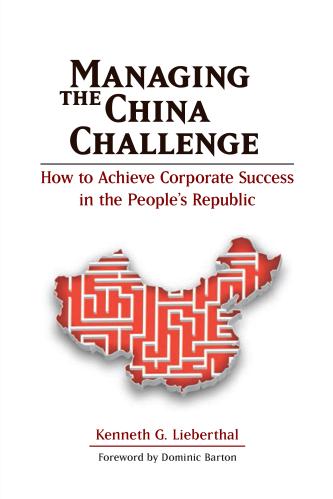
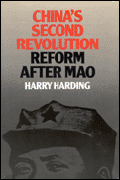
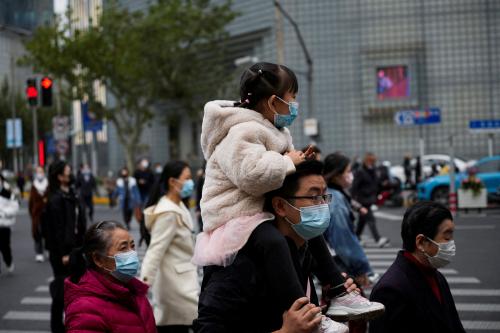
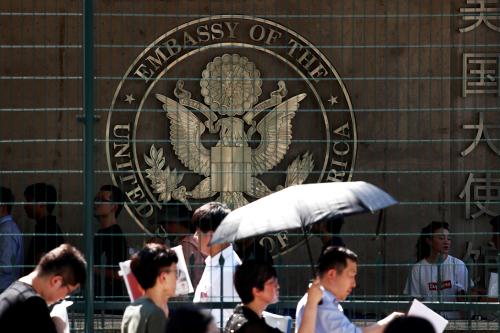
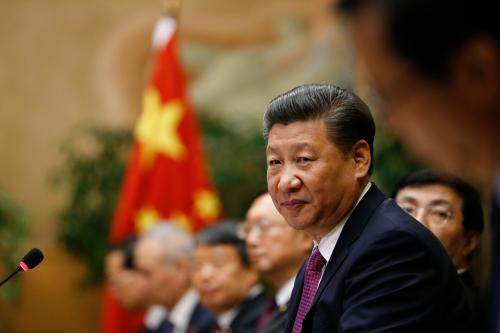


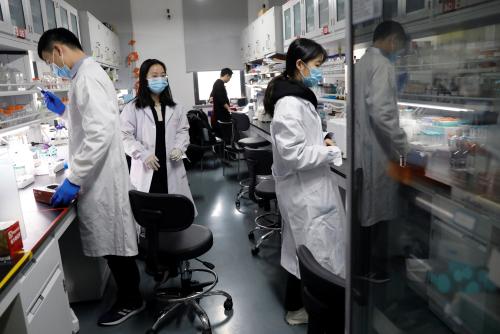

Commentary
4 ways the U.S. can raise human rights issues with China
June 21, 2018